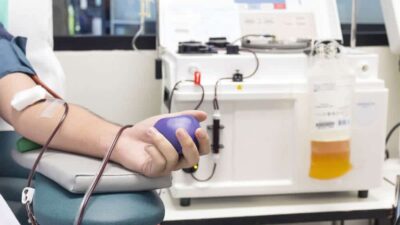
Treatment is a multifaceted concept, transcending mere prescriptions and interventions. It encompasses an array of strategies aimed at improving the well-being of individuals, whether through curing disease, alleviating symptoms, or enhancing overall quality of life. Historically, the concept of treatment has evolved from rudimentary practices rooted in superstition to a highly sophisticated, evidence-based approach. As we stand at the precipice of cutting-edge medical advancements, the future of treatment promises even more tailored, precise, and accessible options. However, with progress comes a host of challenges—both scientific and ethical—that demand our attention. This article delves into the various dimensions of treatment, exploring its evolution, the factors influencing its success, and the future of healthcare delivery.
Understanding the Foundations of Treatment
The term “treatment” often brings to mind the idea of a specific remedy for an illness, yet its meaning extends far beyond this narrow definition. Treatment can be physical, mental, or emotional, and it can take the form of medical procedures, psychotherapy, or lifestyle modifications. In its most common form, medical treatment involves therapeutic interventions designed to restore health, alleviate suffering, or manage chronic conditions.
Pharmaceutical treatment, for instance, has revolutionized modern medicine. The introduction of antibiotics in the mid-20th century, for example, marked a turning point in healthcare by drastically reducing mortality rates from infections. Vaccines, pain management therapies, and immunotherapies have similarly transformed how we approach illnesses, offering solutions where none existed before. However, medication alone cannot always address the complexity of a patient’s condition, particularly in cases of chronic illnesses, mental health issues, and diseases with multifactorial causes. This is where a more holistic approach to treatment comes into play.
Psychological treatment has also seen remarkable advancements. Whereas early methods of mental health care often involved institutionalization and rudimentary techniques, the 20th century brought forth a more nuanced understanding of the mind. Psychoanalysis, behavioral therapy, and later, cognitive-behavioral therapy (CBT) became foundational in managing conditions like depression, anxiety, and PTSD. These therapies work by addressing the cognitive, emotional, and behavioral patterns that underlie mental health issues, often leading to long-term improvements.
Holistic and Integrative Approaches: A Shift in Perspective
In the modern era, the trend toward holistic care has become more pronounced. Holistic treatment emphasizes the integration of mind, body, and spirit in promoting well-being. Rather than simply treating the disease or symptom in isolation, holistic methods aim to foster balance and harmony within the individual. This approach often includes complementary therapies such as acupuncture, herbal medicine, chiropractic care, and even meditation. While these treatments may not always have the empirical backing of traditional Western medicine, many individuals find them valuable for improving their quality of life, especially when used alongside conventional treatments.
One of the most significant shifts in holistic treatment is the growing acknowledgment of the mind-body connection. It is now well understood that mental health can significantly influence physical health, and vice versa. Chronic stress, for example, has been linked to a variety of health issues, from cardiovascular disease to autoimmune disorders. As such, treatments like mindfulness meditation, yoga, and biofeedback are being incorporated into mainstream healthcare systems to manage not only stress but also physical conditions like chronic pain, insomnia, and hypertension.
The Rise of Personalized Treatment: Precision Medicine
Perhaps one of the most groundbreaking advancements in the field of treatment is the emergence of personalized medicine. Fueled by advances in genomics, biotechnology, and data analytics, personalized treatment plans are designed to cater to an individual’s unique genetic makeup, lifestyle, and environmental factors. The idea behind personalized medicine is that no two individuals are exactly alike, and therefore, a “one-size-fits-all” approach to treatment is increasingly inadequate.
For example, in the field of oncology, precision medicine has revolutionized cancer treatment. Genetic testing of tumors allows oncologists to identify specific mutations driving the cancer’s growth, enabling them to select therapies that target those mutations precisely. This approach, known as targeted therapy, has shown remarkable success in treating cancers like melanoma, lung cancer, and breast cancer. Furthermore, the rise of immunotherapies has added another layer of promise, using the body’s immune system to fight cancer in ways that traditional chemotherapy could not.
The benefits of personalized medicine are also evident in pharmacology. By analyzing a patient’s genetic profile, doctors can now prescribe medications that are more likely to work effectively and with fewer side effects. Pharmacogenomics, the study of how genes influence drug responses, has the potential to significantly reduce adverse drug reactions, which remain a leading cause of hospitalization and death.
Challenges and Ethical Considerations in Treatment
Despite the incredible advancements in treatment, several challenges persist. One of the most significant issues is the accessibility of modern healthcare. In many parts of the world, even basic healthcare remains out of reach for large segments of the population. While affluent societies often benefit from the latest innovations, people in underserved communities may still struggle with outdated treatment options or lack of access to qualified healthcare providers.
Affordability is another critical concern. As new treatments emerge—especially personalized and high-tech therapies—the cost of healthcare continues to rise. This is particularly evident in areas like genetic testing, where the expenses associated with sequencing an individual’s genome can be prohibitively expensive. While the cost of sequencing has dramatically decreased over the past decade, it still presents a barrier to many patients who could benefit from these services.
Additionally, ethical dilemmas surrounding treatment choices continue to evolve. With new technologies such as gene editing and regenerative medicine, questions about the moral implications of altering human biology arise. For example, the use of CRISPR technology to edit the human genome has the potential to eliminate genetic diseases, but it also raises concerns about “designer babies” and the possibility of unforeseen consequences. The ability to modify genes in embryos, while offering hope for eliminating inherited conditions, also invites discussions about societal pressures, genetic inequality, and the sanctity of human life.
The Future of Treatment: Integration of Technology and Compassionate Care
Looking ahead, the future of treatment seems poised to embrace the integration of advanced technology and a more compassionate, patient-centered approach. Artificial intelligence (AI), machine learning, and big data are transforming the way we diagnose and treat illnesses. AI-powered diagnostic tools, for instance, are already outperforming human doctors in certain areas, such as interpreting medical images and identifying patterns in patient data. These technologies have the potential to revolutionize early diagnosis, providing a level of precision and efficiency that was once unimaginable.
Furthermore, the rise of telemedicine and digital health tools is making treatment more accessible and convenient for patients. Virtual consultations, remote monitoring, and mobile health applications are allowing individuals to manage their health more effectively from the comfort of their homes. This is particularly important in areas where access to healthcare facilities is limited, offering a lifeline for patients who would otherwise go without care.
Nevertheless, despite these technological advancements, the human element of treatment remains indispensable. The relationship between patient and healthcare provider is not something that can be replaced by a machine. Empathy, understanding, and clear communication are essential components of effective care, ensuring that treatment plans are not only scientifically sound but also aligned with the patient’s values, needs, and preferences.
Conclusion: The Ongoing Journey of Treatment
The journey of treatment has been nothing short of extraordinary. From ancient remedies to the most sophisticated modern therapies, the field of treatment continues to evolve, guided by scientific discovery, patient-centered care, and ethical considerations. While challenges remain—particularly in terms of access, cost, and the ethical implications of new technologies—the future of treatment holds enormous promise. As we continue to integrate innovative technologies with a holistic approach to care, the ultimate goal remains the same: to restore health, enhance quality of life, and provide individuals with the tools they need to lead fulfilling lives. Ultimately, treatment is not just about curing disease; it is about fostering well-being in all aspects of the human experience.






